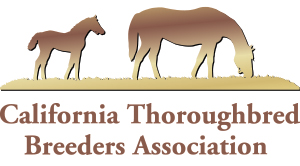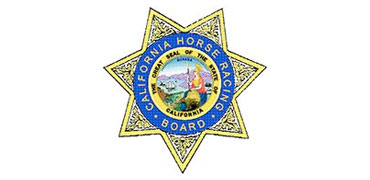From CHRB
BERKELEY, CA – The California Horse Racing Board conducted its regular meeting Thursday, April 6, at Golden Gate Fields. Chairman Chuck Winner presided. Second Vice Chair Madeline Auerbach and Commissioners Jesse Choper and Alex Solis also were in attendance.
The audio of this entire Board meeting is available on the CHRB Website (www.chrb.ca.gov) under the Webcast link. In brief:
· The Board approved technical and substantive revisions to a regulatory amendment requiring that race-day authorized bleeder medication be administered by independent, third-party veterinarians. The Office of Administrative Law must approve the revisions before the new regulation goes into effect.
· Greg Avioli, president of the Thoroughbred Owners of California (TOC), informed the Board that the advance deposit wagering (ADW) provider TwinSpires had not yet fulfilled its contract to provide the precise locations where bets are being made in California, so the horsemen’s group has withdrawn its authorization for Twinspires to accept wagers from California residents on California races. He said the TOC would reinstate TwinSpires whenever they begin providing geo-location information, which three other ADW companies already are providing. The goal is to identify wagers being placed by ADW customers while they are attending the races, so that tracks and horsemen can receive a greater share of revenue from those wagers.
· The Racing, Breeding and Stabling Initiatives Committee reported on a meeting held at Golden Gate on March 23 to assess the adequacy of stabling for the current meet. Committee Chair Auerbach and member Solis both inspected the stable area and determined that stabling complies with CHRB safety requirements. They also determined there are sufficient stalls at Golden Gate to accommodate all horses on the circuit at least until May 1, at which time the authorized training facility in Pleasanton is scheduled to re-open in anticipation of the arrival of 2-year-olds.
· The Board approved the license application for the Pechanga Band of Luiseno Indians to operate a satellite wagering facility at the Pechanga Resort and Casino in Temecula. Pechanga proposes to begin accepting horse racing wagers on May 1. Admission will be free.
· Representatives of the Square Peg Foundation gave a presentation on their adoptive riding program, which brings rescued, re-trained horses together with at-risk and special needs children and youths. Vice Chair Auerbach said she was proud to say that partial funding from the California Retirement Management Account (CARMA) has helped Square Peg expand its program and she hopes to arrange for other horse-rescue operations to make similar presentations, so that more people will become aware of the industry’s proactive efforts to provide for the health and safety of horses after they complete their racing careers.
· The Board authorized the Humboldt County Fair to install a new inside rail similar to those installed at Del Mar and Santa Anita that utilize new technology for improved safety for horses and riders.
· The Board approved adjustments to the jockey riding fee scale to meet minimum-wage requirements mandated by statute. The amendment also deals with concerns cited by the Office of Administrative Law.
· The Board authorized steward panels at the various racetracks to approve the cancelation of place and/or show wagering pools if the host association is unable to contact CHRB executives for this purpose. Associations sometimes want to cancel place and/or show wagering in advance of the onset of wagering if they anticipate overwhelming support for a particular horse that would cause them to lose money on the pool.
· Executive Director Rick Baedeker reported staff accompanied Vice Chair Auerbach and Commissioner Solis on an inspection of Del Mar to determine the steps being taken to provide for the safety of horses and riders. He cited a recent news release issued by Del Mar describing their efforts.
· In his Executive Director’s Report, Baedeker also announced progress in the program to implant microchips in all horses racing in California for identification and inventory purposes. And he reported that the Board is ready to launch a necropsy review program designed to provide information that could result in fewer injuries to horses.


